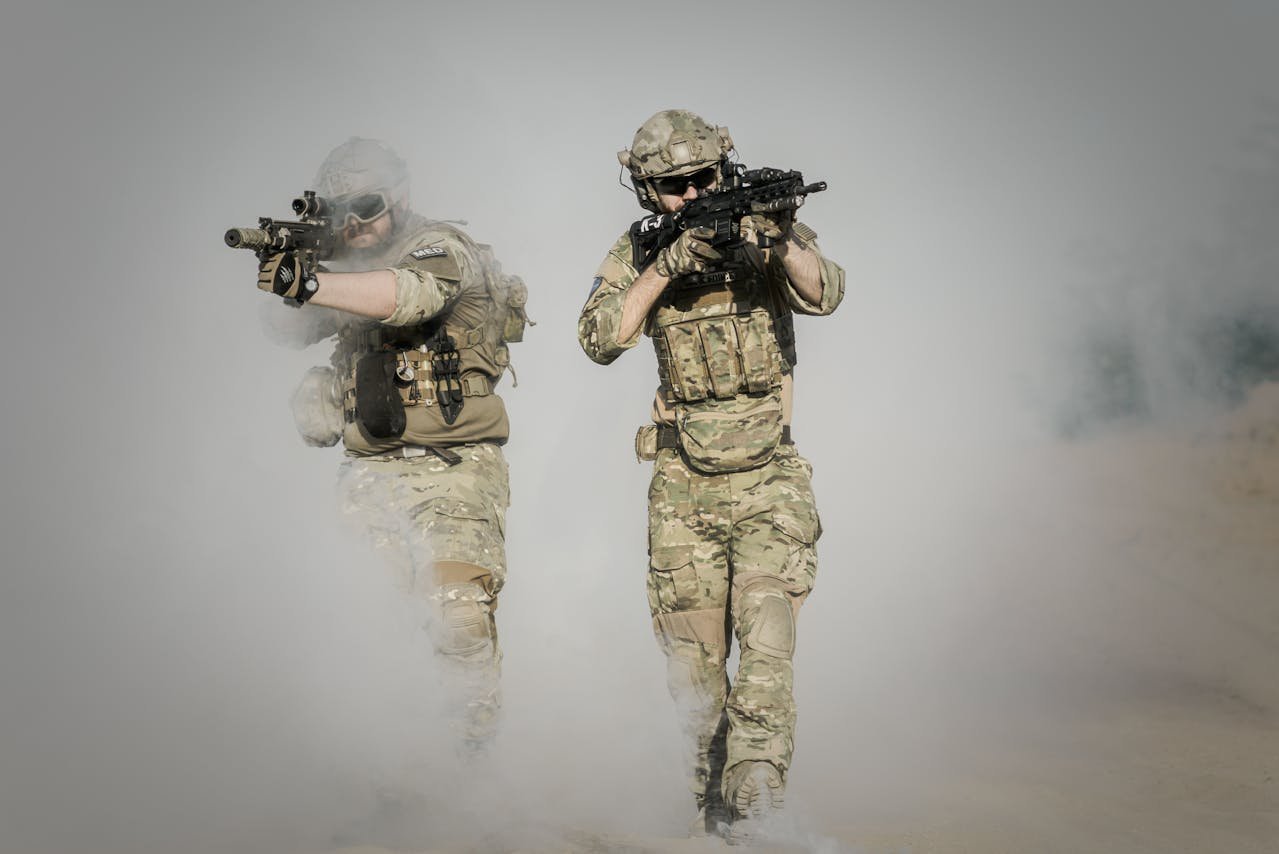
Introduction
Throughout history, the military has been a crucible for leadership, shaping individuals who inspire, guide, and motivate under pressure. The lessons learned in the heat of battle hold profound insights that can be transferred to modern organizations. As we navigate the complexities of today’s corporate landscape, understanding and applying these lessons becomes increasingly important.
Military leadership is characterized by a unique blend of discipline, strategy, and ethical decision-making. Integrating these principles can cultivate a culture of accountability and resilience within teams. Moreover, the timeless wisdom of military leaders provides a framework for emerging leaders to develop their own styles while remaining grounded and humble.
This article will explore several key quotes that encapsulate the essence of military leadership. For instance, General Omar Bradley famously stated, “Leadership is a privilege to serve, not command.” This idea serves as a reminder that true leadership is rooted in humility and the willingness to uplift others. Furthermore, we will delve into the insights of scholars and philosophers, such as Hogan and Kaiser, who link ethical leadership to trust and mission success, as well as Plato’s perspective on power and responsibility.
By examining these foundational concepts, we aim to equip leaders with the tools necessary to foster a culture of ethical leadership and mentorship. Leaders today can learn invaluable lessons from military history, ensuring their approach not only drives results but also cultivates respect and trust among their teams.
Foundational Principles
The Importance of Humility in Leadership
Humility is often overlooked in the realm of leadership, yet it stands as a cornerstone for effective guidance. A humble leader recognizes that their position is not merely about authority but about service. This mindset fosters an environment where team members feel valued and empowered to contribute. Humility in leadership encourages open communication, collaboration, and the willingness to admit mistakes, ultimately leading to greater team cohesion.
General Omar Bradley succinctly encapsulated this idea when he stated, “Leadership is a privilege to serve, not command.” This perspective shifts the focus from exerting power to embracing the responsibility of serving others. In a military context, leaders are tasked not only with making decisions but also with ensuring their troops are supported and prepared. This principle is equally vital in modern organizations.
In today’s corporate world, the essence of Bradley’s quote resonates strongly. Leaders who adopt a service-oriented approach cultivate trust and loyalty among their teams. By prioritizing the needs of their employees, they create a culture that values collaboration and innovation. Such leaders are more likely to inspire their teams to achieve shared goals, as they foster an atmosphere where everyone feels invested in the mission.
Integrating humility into modern leadership practices not only enhances team dynamics but also drives mission success. When leaders serve rather than command, they lay the groundwork for a thriving organizational culture that values ethical leadership and mutual respect. This foundation sets the stage for the next essential component of effective leadership—ethical decision-making.
Ethical Leadership
Ethical leadership is the bedrock of trust within any organization. When leaders prioritize ethics, they create an environment where team members feel safe to express their thoughts and concerns. Trust is not merely a byproduct; it is a prerequisite for achieving collective goals. According to research by Hogan and Kaiser, “Ethical leadership correlates with unit trust and mission success.” This means that when leaders act ethically, they not only enhance trust but also increase the likelihood of accomplishing their organizational objectives.
Statistics reveal that organizations led by ethical leaders experience a 30% increase in employee engagement. This boost in morale directly impacts productivity, as engaged employees are more likely to be committed to their roles and the mission of the organization. In military settings, trust among soldiers can mean the difference between success and failure in critical operations. When troops trust their leaders, they are more willing to follow orders, take calculated risks, and work collaboratively, which ultimately enhances mission success.
Furthermore, ethical leadership fosters a culture of transparency and accountability. When leaders demonstrate ethical behavior, they set a standard for their teams. This nurtures a sense of responsibility among team members, encouraging them to uphold similar values. As trust builds, so does the effectiveness of the team, paving the way for innovative solutions and increased performance.
In this context, the next crucial aspect of leadership will delve into the concept of power and responsibility, examining how ethical considerations shape the dynamics of authority.
Power and Responsibility
Plato famously stated, “The measure of a man is what he does with power.” This profound insight underscores the intrinsic link between power and responsibility. In leadership, possessing authority is not merely a privilege; it comes with the weight of ethical obligations. Leaders are tasked with making decisions that impact their teams, organizations, and even broader communities. This responsibility can often be a double-edged sword, especially in today’s complex and fast-paced environment.
Modern leadership faces numerous challenges, including navigating workplace diversity, fostering innovation, and managing crises. The decisions made by leaders can shape organizational culture and influence employee morale. For instance, a leader who exercises power responsibly will prioritize transparency and inclusivity, ensuring that all voices are heard and valued. This approach fosters trust and creates a collaborative atmosphere, essential in today’s diverse workplaces.
Examples of responsible leadership abound in various sectors. Consider the military, where leaders must make critical decisions under pressure. During operations, a commanding officer who considers the welfare of their troops while executing orders embodies responsible leadership. Similarly, in the corporate world, leaders who prioritize ethical practices and employee well-being, such as those who implement family-friendly policies, demonstrate a responsible use of their authority.
As we explore the nuances of power and responsibility, it becomes clear that ethical leadership is not just beneficial but essential for fostering trust and achieving mission success. This lays the groundwork for our next discussion on mentorship and the principles of servant leadership.

Mentorship and Servant Leadership
Servant leadership is a philosophy that prioritizes the needs of others. Unlike traditional leadership models that focus on hierarchy and authority, servant leadership emphasizes support and empowerment. The leader’s role is to serve their team, ensuring that members have the resources and guidance needed to succeed. This approach fosters a culture of trust, collaboration, and mutual respect.
One practical application of servant leadership is through mentorship. Mentoring a junior peer involves sharing knowledge, skills, and experiences to help them grow personally and professionally. This relationship not only benefits the mentee but also enriches the mentor, reinforcing their leadership skills and broadening their perspective.
Benefits of Servant Leadership
Implementing servant leadership and mentorship can yield numerous advantages:
Enhanced team morale as members feel valued and supported.
Increased engagement, resulting in higher productivity.
Improved retention rates, as employees are more likely to stay in a supportive environment.
Stronger relationships among team members, fostering collaboration and innovation.
In the military, the principles of servant leadership are evident in how experienced officers guide younger soldiers. This not only prepares the next generation of leaders but also creates an atmosphere of loyalty and commitment. In the corporate world, companies that embrace servant leadership often report greater employee satisfaction and performance. By focusing on the growth of individuals, organizations can cultivate a resilient and effective workforce, ready to tackle challenges together.
Organizational Culture
The influence of military leadership principles extends deeply into organizational culture. Military organizations emphasize discipline, accountability, and a clear chain of command. These principles can foster a strong sense of purpose and unity within teams in any sector. By adopting such values, organizations can create a culture where every member understands their role and responsibilities, leading to improved cohesion and collaboration.
|
Traditional Culture |
Military-Inspired Culture |
|---|---|
|
Hierarchical structure |
Team-oriented structure |
|
Focus on individual achievements |
Focus on collective success |
|
Limited communication |
Open lines of communication |
|
Risk-averse |
Encourages calculated risk-taking |
Successful organizations such as the U.S. Navy and companies like Starbucks and Google have integrated military-inspired leadership principles into their operations. The U.S. Navy is known for its effective team dynamics, where each member plays a critical role in mission success. Similarly, Starbucks emphasizes teamwork and a shared mission, allowing employees to feel valued and part of a larger goal.
The impact of these principles on employee morale and productivity cannot be overstated. A military-inspired culture promotes trust and mutual respect, leading to higher engagement levels. When employees feel a strong connection to their organization’s mission, they are more likely to put forth their best efforts. As a result, this culture not only enhances morale but also drives productivity, ultimately fostering an environment where success becomes a collective achievement.
FAQ on Military Leadership
As organizations strive to integrate military leadership principles, several common questions arise. Here, we address some of these inquiries to provide clarity on applying these valuable lessons in modern contexts.
1. How can I implement military leadership principles in a civilian organization?
Start by adopting a clear chain of command and promoting accountability. Emphasize teamwork and collective goals, much like military units work together to achieve missions. Regular training and drills can also enhance preparedness and cohesion within teams.
2. What role does humility play in military leadership?
Humility is crucial in military leadership as it fosters an environment of respect and collaboration. Leaders should recognize that their role is to serve their team, not merely to command. This approach encourages open communication and strengthens relationships.
3. Can ethical leadership from military history apply to all sectors?
Absolutely. Ethical leadership builds trust and enhances mission success across various fields. The principles of integrity, fairness, and transparency are universal, making them relevant in any organizational context.
4. How do I mentor others using military leadership principles?
Mentorship in this context involves guiding junior peers through servant leadership practices. Share your experiences and provide constructive feedback. Encourage them to take on responsibilities and empower them to make decisions, mirroring the supportive nature of military mentorship.
5. What is the best way to encourage a culture of trust?
To foster a culture of trust, leaders should model transparency and accountability. Open dialogue and acknowledgment of team contributions can enhance morale and encourage employees to feel valued, leading to a more unified organization.
Summary of Key Takeaways
Throughout this exploration of leadership lessons drawn from military history, several core principles have emerged that are essential for effective leadership today. Integrating these lessons not only enhances individual leadership practices but also strengthens organizational culture.
Key themes include the significance of humility, ethics, and mentorship. Each aspect plays a vital role in shaping leaders who inspire trust and foster collaboration within their teams.
Humility: The essence of leadership is serving others. Leaders should prioritize the well-being of their team, recognizing that their authority is a privilege.
Ethical Leadership: Ethical practices are fundamental. They build trust and ensure mission success, reinforcing the idea that integrity should guide all decisions.
Mentorship: Investing time in mentoring junior peers is crucial. By applying servant leadership principles, experienced leaders can help others grow, creating a culture of continuous development.
These takeaways highlight the importance of aligning leadership styles with the ethical and humble principles observed in military contexts. By embodying these values, leaders can effectively navigate the complexities of modern organizations and inspire their teams to achieve shared goals. The integration of humility, ethics, and mentorship not only uplifts individuals but also cultivates a thriving organizational environment.

Conclusion
As we reflect on the invaluable lessons from military history, it becomes clear that the principles of leadership derived from this domain hold immense relevance for modern organizations. The military’s emphasis on humility, ethical conduct, and a commitment to serving others provides a solid foundation for effective leadership. These attributes are not just theoretical ideals; they are practical tools that can enhance the way we lead in contemporary settings.
By embracing the notion that leadership is a privilege to serve—much like Gen. Omar Bradley articulated—we can reframe our approach to leadership. This perspective encourages a culture of collaboration and trust, where team members feel valued and empowered. Ethical leadership is not merely a guideline; it is a necessity for fostering trust and ensuring the success of any mission, as emphasized by scholars like Hogan and Kaiser.
Moreover, the practice of mentorship as a form of servant leadership allows us to uplift those around us. By investing time and resources into developing junior peers, we not only strengthen our organizations but also ensure a legacy of capable and ethical leaders for the future.
In your own leadership journey, consider how you can integrate these military-inspired principles into your daily interactions. Whether it’s through demonstrating humility, committing to ethical practices, or mentoring others, each action contributes to a stronger, more cohesive team. Let these lessons guide you as you strive to lead with integrity and purpose.
Contact us and grow with us. Connect with us on Youtube, Facebook, and LinkedIn.
We hope to see you soon!





Leave a Reply